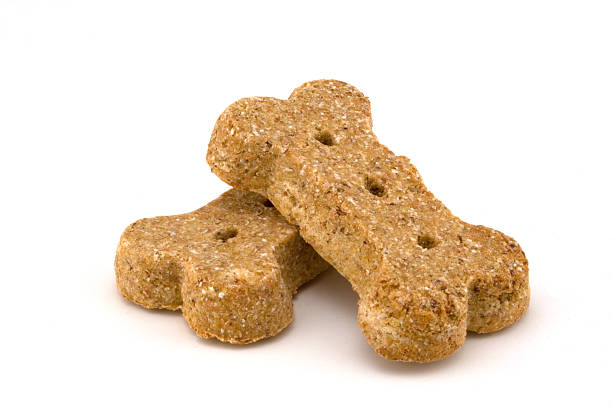It is critical to correctly identify skin problems in dogs as they can be extremely harmful. The visible symptoms do not necessarily indicate an external source. Even though many external factors contribute to dogs’ skin issues, it’s equally possible that such conditions arise from internal issues. Should the dog’s immune system be weakened, it may not adequately defend your pet against external risks, which often result from the dog’s diet.
Also worth checking: Does My Dog Have Mites or Mange?


Ingredients can be All Important!


Most commercial dog foods contain only the barest minimum of what dogs need and often replace the missing content with cheap filler products. This is all so the big companies can turn a favourable profit. A sample commercial dog food will probably use an ingredient like corn as the base of the diet.
Related read: Understanding Pet Food Labels
What does a dog need corn for? Evolution did not see ancestral dogs and wolves grazing in cornfields for lunch. And don’t get me started on animal meat derivatives which are a by-product of the human food industry, i.e. the parts we don’t eat like the intestines, bones, cartilage, etc.
These ingredients (not to mention preservatives, colours, artificial additives, and other derivatives) contain very little nutritional value, especially after the cooking process heated even more nutrients out of the food.
Open formulas also contribute to poor health as well. When dog food is manufactured, its recipe will either be a closed or an open formula. An open formula is where the recipe is left open to changes such as ingredient swapping.
You may want to know How to Choose the Right Food for Your Dog


Most commercial dog food manufacturers use an open formula to swap ingredients when they become cheaper on the market. While this benefits a company, it can have negative health effects on dogs. For one thing, it means that you never know what’s in the dog food all the time. Another thing is that dogs’ digestions do not cope very well with sudden dietary changes.
When choosing a dog food, look for one with a closed formula because this means the recipe is constant, so you know your dog is always getting the same thing.
There may also be toxins present in commercial dog foods, making a dog’s immune system work lots of overtime to deal with them. This can severely weaken the immune system leading it to react inappropriately, with very itchy results such as different skin conditions cropping up. Many low-quality dog foods also lack the essential nutrients, minerals, and vitamins that dogs need to maintain a healthy immune system.


A general nutritional deficiency could be the cause of itching and scratching. Even a lack of specific nutrients could be the cause. A shortage of omega oils can lead to flaky and dry skin. The easiest way to avoid digestive-related skin problems and conditions is to provide your dog with a healthy and balanced diet free of ingredients they don’t need.
A good diet will help keep the immune system running smoothly, maintain healthy skin and coat, and reduce itchy incidents.
Remember: Meal times are not the only time your dog eats; treats are also part of the dietary intake and should be just as healthy and nutritious as his regular meals! If your dog lacks essential vitamins, minerals or enzymes, you might consider adding a dietary supplement to their food. For example, if your dog is experiencing dry and flaky skin, a supplement containing omega 3 & 6 oil like Yumega Plus can be very effective at restoring skin condition.
You may also like: Why is Apple Cider Vinegar Good for Your Dog
In many cases, a proper diet should help dogs with skin problems recover or prevent them in the first place. If they still experience skin conditions, you should consider other causes like allergies or parasites.
Remember: It is important to note a difference between diet-related itching and food allergies, as these are allergic reactions to a certain type of food.
The difficulties in choosing the right dog foods are obvious to anyone who has tried them. The front of the packet is usually covered in superlative adjectives to sucker you into thinking that the dog food you’re holding is the best. The back of the packet or wherever the ingredients are listed usually make very little sense to most of us. Most companies use vaguely scientific-sounding words on their food labels to hide what’s really in their food.


